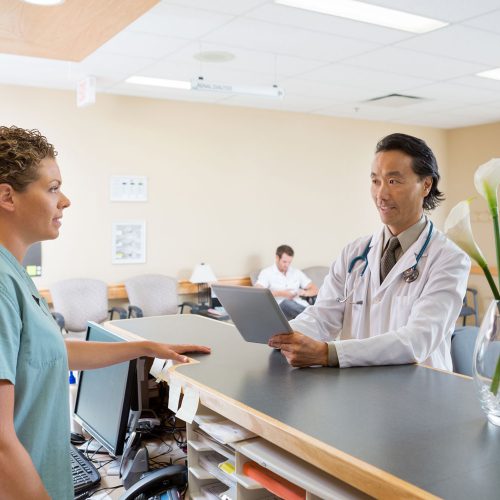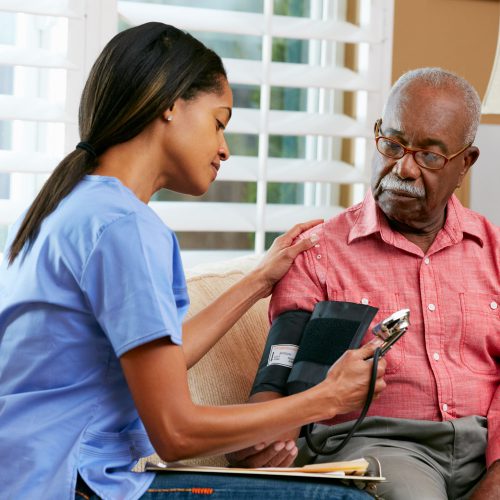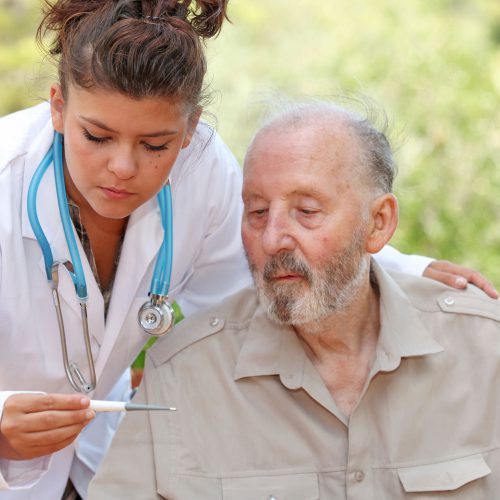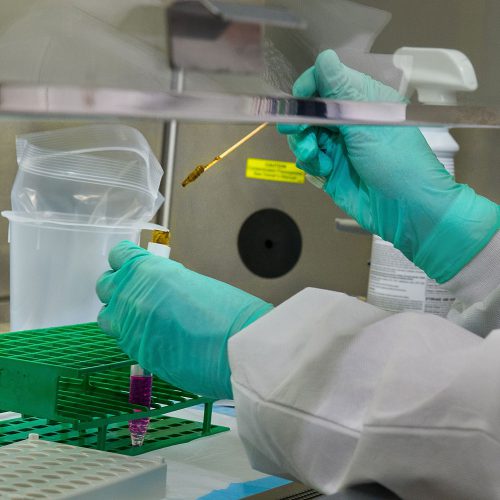
Medical Assistant
The Course prepares the graduate for entry level positions in the medical field as Medical Assistants, front and back office and other closely related direct care roles such as hospices, home health service and restorative care. Throughout the course, the participants receive instruction in a wide variety of medical procedures through lecture, laboratory demonstration, and hands-on experience.
Medical Assistant Students are trained to perform basic medical procedures including taking vital signs, perform injections and venipuncture, perform routine laboratory work, ECG configuration and CPR. The Students will also receive training as receptionists in a medical environment, medical records (Medisoft) and customer service/communications skills, nutrition, cultural awareness, infection control, dementia and hospice care as well as terminology and ethical issues of the medical field. Great emphasis is placed on safety procedures protecting both the technician the patient. Students will also be trained to properly record and handle patient information, prepare patient files for billing and collections, and more.
Graduates will be able to work in doctors offices, hospitals, labs, outpatient clinics, chiropractic officers, acupuncture offices, physical therapy clinics, hospice care, assisted living communities, and in a one-on-one home care setting.
The units listed below are each 24 clock hours in length. This, along with the required outside preparation, represents .80 semester credits for each unit.
Course Subjects
Medical Terminology
Students learn the meaning of most commonly used terminology in clinical settings thus developing ability to learn and understand medical terms.
Office Procedures/HIPAA
Students learn the different filing systems used in the medical field, methods of documenting patient’s visits, and various aspects of proper documentation. Students will learn the basic rules of HIPAA (Health Insurance Portability and Accountability Act of 1996).
Law and Ethics
Students learn about government legislation and regulations, Federal and State guidelines for releasing medical information, the Patient Bill of Rights, the Occupational Safety and Health Act (OSHA) and ethical standards.
Microbiology
The course delivers basic knowledge on categories of different disease-causing microorganisms and human defense mechanisms against microbial infections (immunology).
Windows/Internet
Students learn the basics of operating within the Microsoft Windows software program and how to navigate the Internet.
Word
Students obtain basic skills to be able to operate the Microsoft Word program. Particularly, they learn to enter and format text according to given requirements using different tools of the program.
Excel
Students learn how to operate basic Microsoft Excel for various needs in a medical practice. They create tables, apply formulas for basic calculations and represent data in the form of charts.
Anatomy I and II
This 2-week module incorporates the fundamentals of body mechanics and
restorative care. An overview of the musculoskeletal system will be reviewed, and various procedures will be practiced during the skills lab to enforce proper handling of patients in various situations. Principles of body mechanics during positioning and transfers will ensure safety for both the provider and patient.
Anatomy III
Students will learn about the nervous system and its various disorders. Many of these are widely common amongst the aging population or in patients living with degenerative diseases such as muscular dystrophy or Parkinson’s. An overview of stroke rehabilitation and behaviors and limitations to expect from a patient post stroke will also be discussed.
Physical Examination
Students become familiarized with the tools used in the exam room and the protocol that is followed. Students also learn how to prepare a patient based on the type of examination to be performed. Assisting the doctor during physical examinations; preparing the patient, gathering medical history and taking vital signs.
Examination protocol.
Dermatology and Gastroenterology (Nutrition)
Students will learn the importance of dermal integrity. They will have an overall understanding of pressure ulcers as one of the most common problems for bedridden or partially immobile patients. Students will be able to identify common pressure points to prevent ulcers from developing in patients. Follow up treatment at home for these will also be addressed. Procedures for bathing, oral hygiene, and grooming will be practiced in the skills lab.
They will also learn the importance of nutrition and be taught an overview of the digestive system and information that will equip them to meet their patient’s or client’s nutritional goals and restrictions. Special diets, proper eating habits, caloric understanding and common problems of the digestive system are explored. Proper feeding technique will be practiced hands on.
Hematology/Venipuncture/Dermatology
How blood labs are performed and the responsibilities of the medical assistant. How blood cells are used in diagnosis diseases. Drawing blood. Understanding disorders of the Integumentary system (skin), diagnostic procedures, bandaging.
Urology/Urinalysis/Elimination/Incontinence
Anatomy and Physiology of the urinary system; diagnostic uses of urinalysis. Problems relating to elimination such as hemorrhoids will also be covered. Incontinence will be addressed through procedures carried out through hands on practice.
Pharmacology
History and background leading to drug sources, names and regulations; mathematical calculations in drug administration; generic/trade names; drug interactions; recognizing drug emergencies.
Orthopedics/Diagnostics, Body Mechanics, Muscle Skeletal System
Diagnostic tests and procedures, common disorders of musculoskeletal system and disorders of upper/lower extremities.
OB/GYN & Male Reproduction/ Maternal Care
Parts and functions of the male and female reproductive system; assisting the doctor in examination. Post baby delivery care for the mother.
ECG Configuration and Holter Stress Test
Introducing the ECG environment and ECG machine.
CPR
Cardiopulmonary resuscitation. This module follows the guidelines set forth by the American Heart Association. Students who pass CPR will be awarded certification.
Pediatrics
This module deals with child development from infancy to adolescence.
Emergency Procedures
Recognizing emergencies; commonly accepted protocols and emergency procedures.
Geriatrics
Recognizing medical compliance in the older adult, mental health, coping with aging, long-term care, older adult abuse, medication, systemic changes, and diseases of the older adult. Students will learn to apply a transfer or gait belt, “dangling” clients, turning clients in beds and chairs, moving clients using a lift sheet, log rolling a client, positioning a client in a supine, lateral/side lying position or a fowlers position, assisting the client from bed/toilet to wheelchair and vice versa, transfer with pivot disc or mechanical lift, sliding board transfer, caring for casts, dressing and undressing a client, performing active and passive range of motion exercises and assisting clients to walk with crutches, walkers or canes.
Students will learn the symptoms of the Dementia and Alzheimer’s diseases, personality changes in patients/clients, responses to challenging behavior, community support systems. Students will be educated on the importance of caring for a patient who is terminally ill and approaching death. The components of the stages of grief, religious and cultural influences that surround these situations will be discussed. The hospice program will be introduced.
Asepsis/ Surgeries & Blood Borne Pathogens. Infection control
Disinfection and sanitation of the surgical room, clinical environments and home environments.
Receptionist and Medical Billing I
Students will learn real world work skills in answering telephones, taking messages, routing and screening calls, greeting visitors and handling in-company mail and packages. Students will gain knowledge of the basic fundamentals of medical billing.
Office Management
Basic managerial skills, basic accounting and bookkeeping procedures widely used in doctor’s office; employee responsibilities.
Healthcare Insurance
Types of health insurance; health insurance basics and reporting.
Customer Service/Communications
Students will learn to identify the principles of good customer service skills in a health care facility and home setting and how to communicate with sensitivity and empathy.
Electronic Medical Records (Medisoft) I & II
This introduces the students to common financial and administrative procedures necessary in family practice, medical specialty offices, and large medical facilities. Students will learn to input various patient information, submit insurance claims to various companies, schedule office visits, laboratory appointments, and specific diagnostic and procedural testing appointments. The students will be able to run common reports associated with the medical practice.
Career Development
This course is designed to prepare students for the workforce in the field of study. Students are taught skills that are necessary to prepare them for the job search process. Through various exercises and the use of electronic and traditional media, students are taught how to develop career goals. They are also challenged to realize their potential in their chosen fields and how to use this knowledge in the job-hunting process. Students are required to write a resume, cover letter, job application, interview techniques, and other related assignments. Students will polish their resumes with action verbs, tailor them to specific job advertisements, create a portfolio and research companies in the field of training. They will practice applying for positions online, scheduling interviews and conducting follow-ups.


